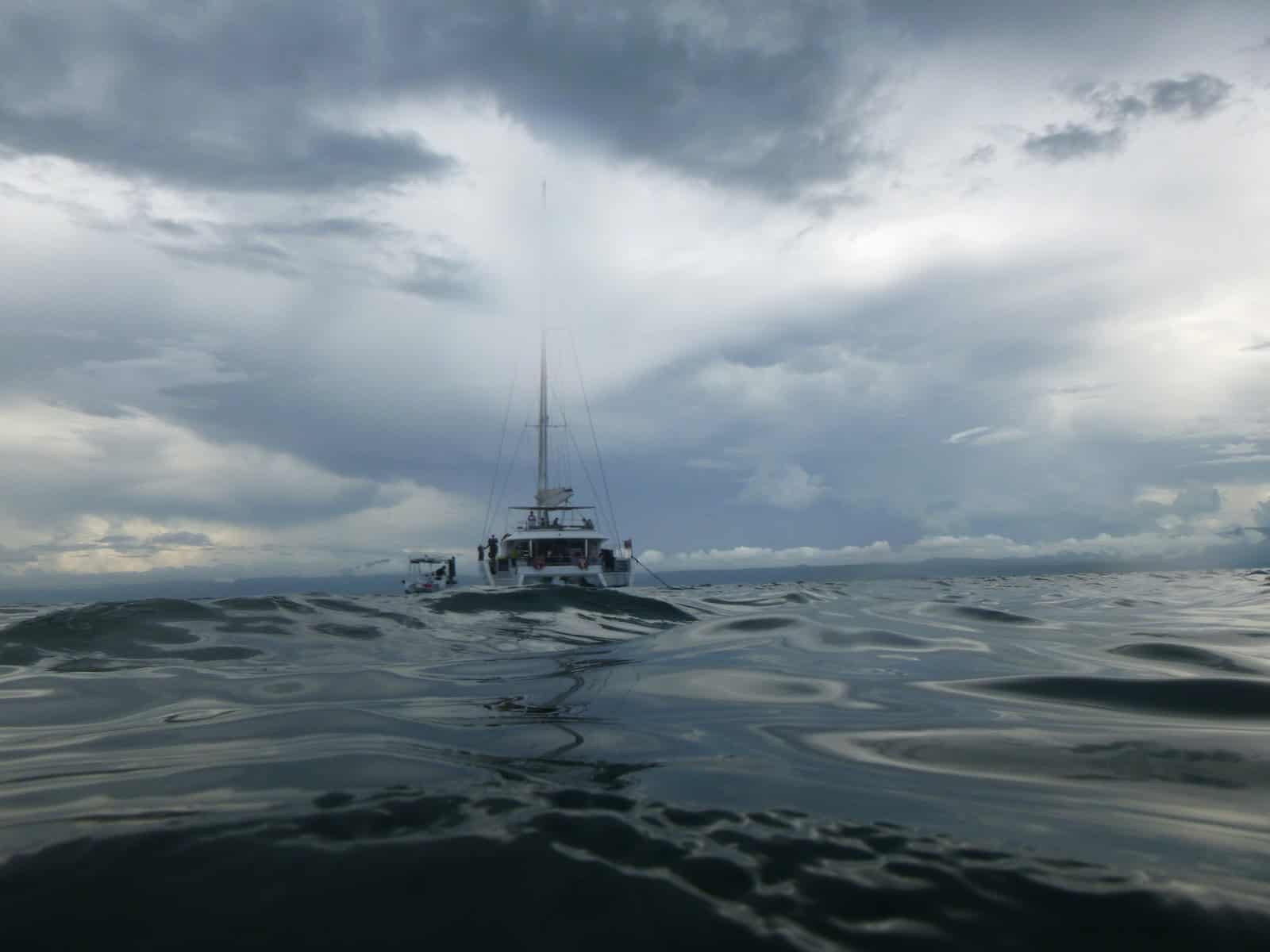Table of Contents
The Excitement of Deep-Sea Fishing
Imagine the salt air on your face and the thrill of a tug on your line. Deep sea fishing is an adventure. You head out to the ocean and try for big fish. It’s different from fishing in lakes or rivers. Out here, you never know what you might catch. The possibilities are vast, like the sea itself.
Why It’s Important to Fish Responsibly
Fishing, including deep-sea fishing, can harm nature if not done right. We must protect the sea and its creatures. When we fish with care, we help the ocean stay healthy. Being responsible means following laws and caring for the sea. This way, we can keep fishing for years to come.

Getting Ready for Deep Sea Fishing
Safety First: Essential Gear and Precautions
Your safety matters most on the water. Always wear a life jacket. Check the weather before you go. Tell someone your plan. Bring a first aid kit, water, and food. Listen to the crew. They know how to keep you safe.
Must-Know Techniques for Successful Deep-Sea Fishing
Reeling in the Big Catch
When a big fish bites, stay calm. Use smooth moves to reel it in. Do not rush. Take your time and enjoy the fight. The right technique will bring the fish to you.
Tips for Baiting Your Hook
Different fish like different bait. Some like small fish. Others like squid or worms. Put the bait on the hook just right. It should look natural. This will trick the fish into biting.
How to Handle Your Fishing Rod
Hold your rod with both hands. Keep it steady. Feel the movement of the boat and the waves. This will help you stay in control. When you feel a bite, pull up to set the hook. Then start reeling.
Being Mindful of the Environment
Respecting Marine Life and Ecosystems
The sea has many kinds of life. We must respect them all. Only take what you will use. Release other fish gently. Try not to disturb the water too much. This helps keep the sea full of life.
Avoid Overfishing
Overfishing is when we catch too many fish, and it harms their population. It’s vital to avoid overfishing so fish populations can replenish and thrive. Follow fishing regulations and limits. If you catch a fish you don’t plan on keeping, release it carefully back into the water. This way, you can enjoy the sport of deep-sea fishing while also protecting the fish and the ocean ecosystem.
Selecting the Right Deep Sea-Fishing Spots
Some areas are better for deep sea fishing. Look for places where fish eat and live. Avoid protected areas. Follow local rules. This will give you the best chance to catch fish and keep the sea safe.
Properly Disposing of Waste
Keep the sea clean. Do not throw trash overboard. Take it back to land. Dispose of it the right way. If we all do this, the ocean stays beautiful and clean for everyone.
Enjoying Your Deep-Sea Fishing Experience
Celebrating Your Catches
When you catch a fish, feel proud. You did well. Take a photo. Share your story. Remember to thank the sea. It gave you a gift.
Connecting with Nature
Being on the ocean brings you close to nature. Breathe in the fresh air. Watch the wildlife. Feel the peace of the water. This is a special part of fishing.
Sharing Your Passion with Others
Tell friends about your fishing trips. Maybe they will want to try it too. You can teach them what you know. Sharing makes the experience even better.

10 Tips You Need to Know Before You Begin
Tip #1: Gear Up Properly. Get the Right Fishing Rod and Reel.
Your rod and reel are vital. Deep sea fishing rods are different than freshwater rods. They must be strong to handle big fish. A heavy-duty reel and a rod with the right length and power are important.
Choose the appropriate bait and tackle. The bait attracts fish. Use what they eat naturally. Lures can also work well. Choose hooks and weights that suit the fish you’re after.
Essential Tip #2: Find the Perfect Spot. Research the Best Locations for Fishing.
Some sea areas have lots of fish. Look for places with natural or man-made structures. Fish gather there. Good spots increase your chances of catching fish.
Learn how to identify fish hotspots. Fish leave clues. Birds feeding on fish at the surface might show where fish are. Also, look for fish on your sonar if you have one.
Essential Tip #3: Weather Watching. Understand How Weather Conditions Affect Fishing.
Fish behavior changes with the weather. Some days are better for fishing than others. Sun and wind can affect where fish are.
Plan your trips according to weather reports. Check the forecast. Pick good weather days for safety and better fishing. Avoid dangerous weather like storms.
Essential Tip #4: Safety First. Learn Basic Safety Measures for Fishing in the Deep Sea.
Know how to call for help. Learn about safety equipment and procedures. Always have a plan in case something goes wrong.
Equip yourself with the necessary safety gear. Always wear a life jacket. Bring things like a first aid kit, flares, and a radio. Make sure your boat is equipped with the right safety tools.
Essential Tip #5: Patience Pays Off. Embrace the Art of Waiting Patiently for a Bite.
Waiting for a fish to bite takes time. Enjoy the calm. Watch the water. Be ready when the fish bite.
Techniques for staying patient while fishing. Relax and enjoy your time at sea. Keep watch for signs of fish. Talk with friends or listen to music while you wait.
Essential Tip #6: Reeling in the Catch. Master the Skill of Reeling in Fish.
Reeling in a big fish is hard. Keep the line tight. Pull the rod up and reel down smoothly. Stay focused and patient.
Tips for handling different types of fish. Every fish is unique. Some may jump, others might swim down. Know the fish you’re after. Handle them carefully to avoid injury to yourself and the fish.

Essential Tip #7: Respect the Environment. Understand the Importance of Conservation in Deep-Sea Fishing.
The ocean needs our care. Overfishing hurts the sea. Follow laws about the size and number of fish. This helps keep the ocean healthy.
Practices for responsible fishing. Release small or endangered fish. Keep only what you need. Don’t litter. Responsible practices protect the sea for future generations.
Essential Tip #8: Enjoy the Experience. Embrace the Serenity of Deep-Sea Fishing.
Deep-sea fishing is peaceful. It’s just you and the sea. Take a moment to enjoy the water, the sky, and the quiet.
Tips for relaxing and enjoying the scenery. Savor the view. Watch for sea creatures like dolphins. The sea is full of life and beauty. Remember to take it all in.
Essential Tip #9: Learn from the Pros. Seek Advice and Guidance from Experienced Anglers.
Experienced fishers have wisdom to share. They can give you tips that books or videos can’t. Ask them questions and listen to their stories.
Resources for learning more about deep-sea fishing. There are many resources available. Books, videos, and fishing classes can teach you a lot. Join forums or clubs to learn from others. Here is a link to an article by reelcoquinafishing.com that shares a few more similar tips.
Essential Tip #10: Document Your Adventures. Capture Memories with Photos and Videos.
Take pictures and record your trips. These memories last and show the joy of fishing. Share them with others.
Tips for keeping a fishing journal or Log
Write about your trips. Note what you catch, where, and the conditions. This helps you learn and remember what works best.
Frequently Asked Questions
Q: What are deep-sea fishing charters?
A: Fishing charters are services that provide a boat and a captain for a fishing trip. They are often used by individuals or groups who do not have their own boat or equipment but still want to go fishing.
The charter usually includes all the necessary fishing gear, bait, and sometimes even food and drinks. The captain and crew are knowledgeable about the best fishing spots and techniques, making it easier for participants to have a successful fishing experience.
Q: Is deep-sea fishing possible in California?
A: California fishing is a popular pastime for many people in the state, and obtaining a California fishing license is an essential step in being able to legally take part in the activity. Make sure you own a boat or get a boat rental and California fishing license.
Fishing licenses can be obtained from various sources, including through the Department of Fish and Wildlife, as well as from retail stores or online vendors. If you don’t want to go through the hassle of getting your own license, you can also rent a California fishing license from many sporting goods stores. Regardless of how you obtain a license, you’ll need to make sure you’re following all of the regulations for fishing in the state so that you can enjoy the activity safely and responsibly.
Q: Are there any ways I can help combat any environmental harm caused by fishing? Are there any conservation efforts I can help support?
A: If you want to learn more about how you can protect the ocean, and more about how you can minimize any environmental harm caused by your fishing, read our article by clicking here. It covers various topics but primarily focuses on ocean conservation organizations. These are some great organizations that are worth donating to to help keep the sea clean and accessible for the future!
Final Thoughts on Deep Sea Fishing
Deep-sea fishing is a great hobby. It brings joy and excitement. But remember to fish with care. Keep safety in mind. Respect the sea. This way, you and others can enjoy fishing for a long time. Let’s keep the ocean alive and well for future anglers.









